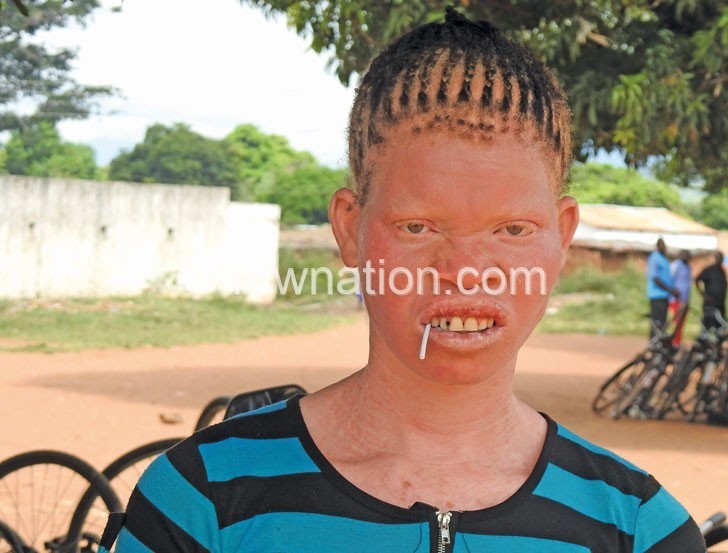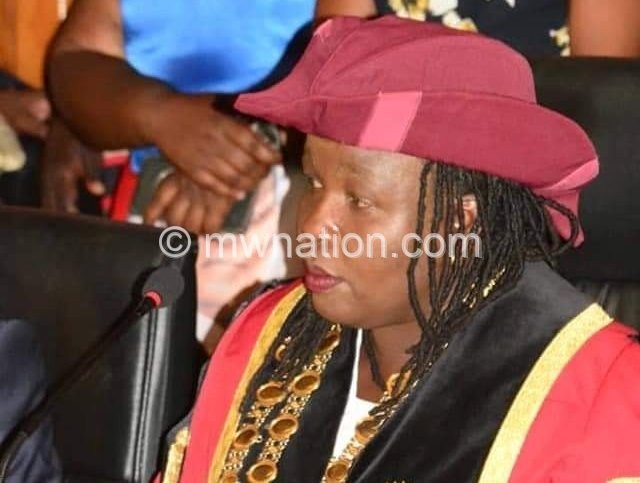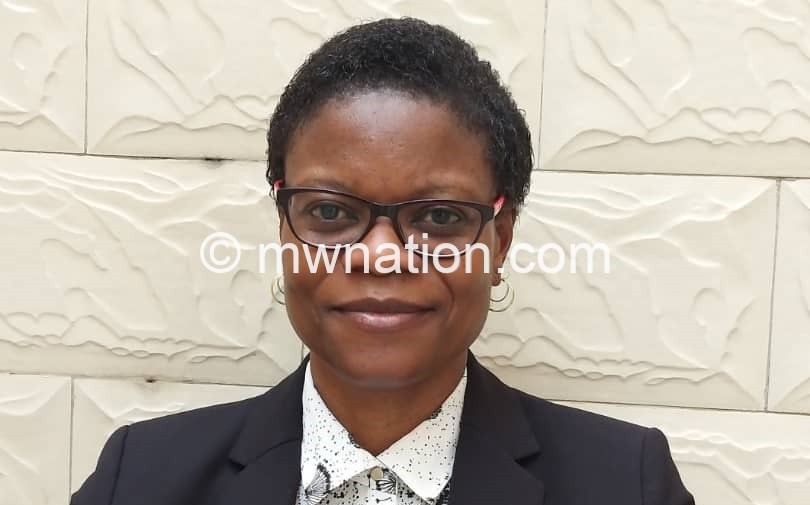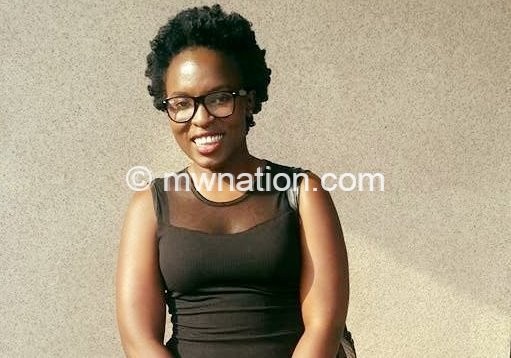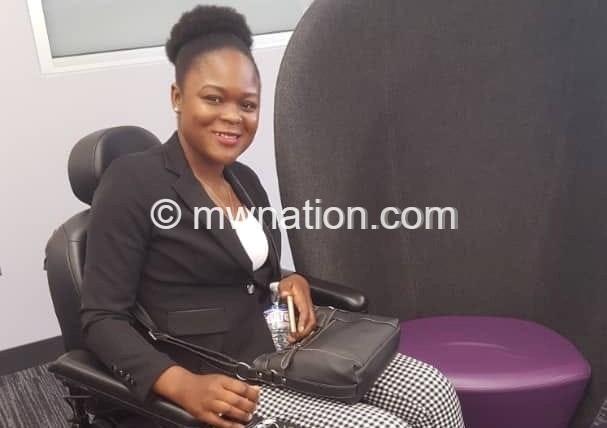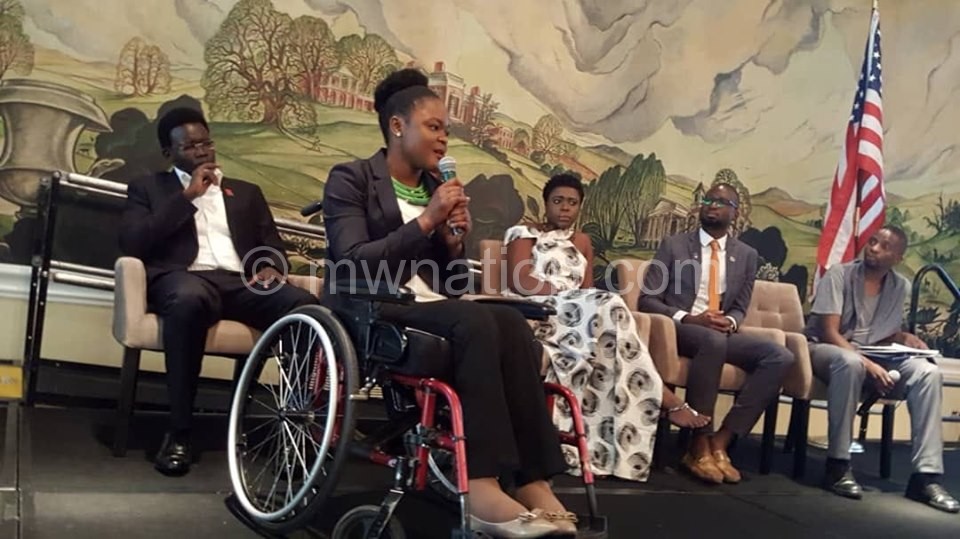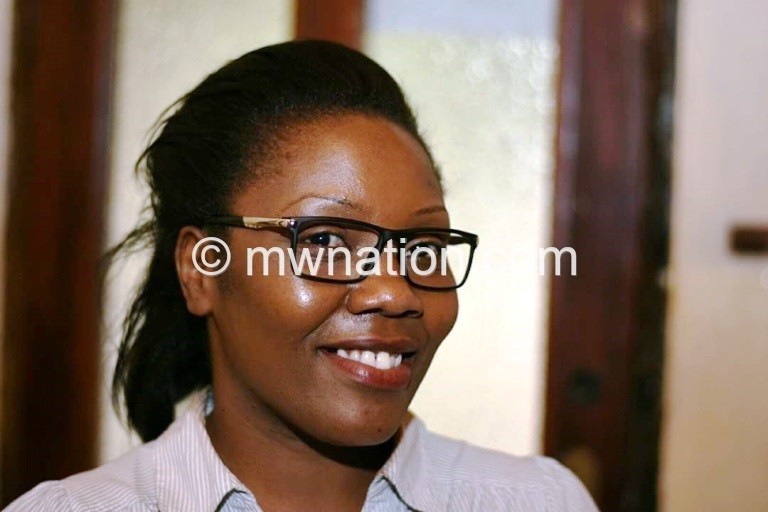Seveteen-year-old Moneyi Chingaipe has become the first Malawian to win a medal at this year’s African Union Sports Council Regional Annual Sports Awards (Rasa) held in Windhoek Namibia.
She is a girl from Lilongwe rural—Kapalanga Village, Traditional Authority (T/A) Kabudula and the ninth born of ten children.

She was born on February 2 2002 and comes off as shy and quiet, but a force to reckon with on the track field.
Moneyi is a Standard Seven schooler at Milombwe Primary School. Her life as an athlete took an unprecedented turn.
Nathan Chingaipe—her father describes Moneyi’s runs just like any other child’s as she was growing up.
“The usual barefoot runs around the compound, the play fields with the other children in the village are what she used to do— nothingthat pointed out that she would be representing her country,” he says.
African Union Sports Council (Ausc), Region Five hosted the fourth edition of the Rasa awards.
The awards celebrate and recognise sports luminaries in 10 countries—Angola, Botswana, Eswatini, Lesotho, Malawi, Mozambique, Namibia, South Africa, Zambia and Zimbabwe.
Moneyi was named ‘The best junior athlete in Southern Africa’ where she received a miniature and monetary prize of R50 000 (about K2.5 million).
The 17-year-old runner overcame rower Lorryn Ashley Bass of Zimbabwe and fellow runner Manqabang Tsibela from Lesotho to bag the regional accolade.
Moneyi, however, unlike her competitors was not raised in sports arenas as an athlete and or indeed given the basics of the field.
But in the Africa Region Five Games, she became the 3 000 metre gold medalist, paving the way for her to be nominated as the best junior athlete by Malawi Sports Council as well as Rasa.
“I started running at my school. Then I began to run in the city. I came number one,” she explains the beginnings of her international medals.
Her coach and head teacher Leonard Dzanja says Moneyi has always been outstanding as an athlete.
Dzanja, who joined Milombwa in 2017 says when he arrived at the school, all sporting activities involved using the ball and athletics was inexistent.
Due to his background in athletics training, he decided to get the learners running as part of their physical and sporting activities.
Having seen the potential the learners have, especially Moneyi who always stood out, he approached the Primary Education Adviser (PEA) and asked for zonal competition at which Moneyi shone.
“At the zone competition, I discovered others, but Moneyi remained outstanding in her runs. I saw that she has so much potential,” said Dzanja who formed athletics clubs which have learners from various schools.
Unwilling to let the Moneyi’s talent die a natural death, he took her to participate in the Central Region athletics competition where she beat all runners and came first.
From there, she was leading all groups— boys and girls alike.
Her talent is one that could not be hidden, but although she had potential, she couldn’t represent the country in a number of international competitions.
“We tried for her to go and compete outside the country, but she didn’t have a passport. Only this time were we able to find funding; hence, providing her with a passport. She has represented Malawi in Argentina, Algeria and Botswana,” he says.
In three major competitions— in the 1 500 metres race in Gaborone Botswana in 2018—her personal best time was four minutes, 57 seconds and 90 mini seconds.
She did the 3 000 m in 10 minutes, 24 seconds and 80 mini seconds— the clock that helped her carry the gold medal.
Moneyi also has a personal best of 17 minutes, 57 seconds and 57 mini seconds in the 5 000 metre race.
Dzanja says Moneyi is a hard worker and that because of her performance; other children in the clubs are being encouraged.
He says athletics is not just about running, but physical exercises that sharpen the learner’s brain to think faster and also do well.
Exemplifying Catherine Chikwakwa once Malawi’s sole athlete and Kefasi Kasiteni— Malawi’s top athlete, he says these talents can take the young athletes farther.
When asked how long she wants to run, Moneyi says she can’t really say about the future, but for now, she wants to continue doing well and get medals on the global scene like Kenya’s female athletes.
Athletics Association of Malawi (AAM) general secretary, Frank Chitembeya says as a federation, they are overwhelmed with her performance.
She is standing as a young model to young women.
“Youth, in this country should know that there is life in sports and in athletics require dedication,” he says.
He adds that Moneyi has achieved the rare feat and she has also underlined the significance of the Malawi Sport Awards as all member countries’ National Sports Awards winners are automatically nominees for the regional awards.
“We are there to help her, but the first thing is herself,” says Chitembeya
For budding athletes such as Moneyi, Chitembeya explains that the federation has a strategy in place to groom and develop the athletes.
“Time and again we take her away from domestic activities and keep her in camp with other young athletes. So, we only give them short rests to see the parents at home so at the end of the day she and other athletes are fully developed,” he says.
On her way to Botswana, she came from the camp where she had been for three months.
He says the federation is also budgeting a lot towards the athletes.
Chitembeya also points out that sports events such as the Be More Race which Standard Bank is sponsoring has given them support to grow the talent.
Moneyi and other athletes are also preparing to compete in other competitions with the largest being the IAAF world championships in Doha Qatar taking place next month.
Moneyi says she is very happy with the medals she has received, thanks to the help of her coach and parents who have been very supportive.
A piece from her parents: “If she starts flirting boys, it will be the end of her career. If she has started helping the country, then she has some years to continue doing so. Asakhale wamawala, she has to safeguard her future and career.”
Moneyi encourages fellow athletes to be competitive so they can also get medals.
The post Moneyi Chingaipe: the first Malawian to win an African union medal appeared first on The Nation Online.



